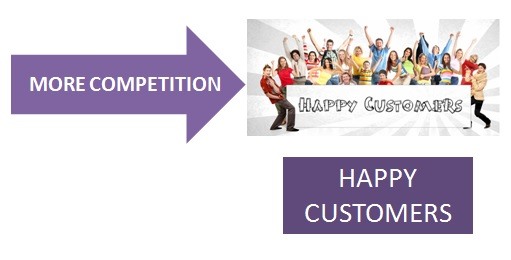How Do Consumers Benefit From Competition Among Businesses

From lower prices on groceries to innovative new gadgets, the impact of competition among businesses reverberates throughout the consumer landscape. But how exactly does this rivalry translate into tangible benefits for the average person? The answer lies in a complex interplay of factors that drive companies to perform better, innovate faster, and ultimately, cater more effectively to consumer needs.
At its core, business competition is a dynamic process where multiple firms vie for the same consumer dollar. This article examines the multifaceted ways in which this competition benefits consumers, drawing upon economic principles and real-world examples.
Lower Prices and Increased Value
One of the most direct benefits of competition is lower prices. When businesses compete, they are incentivized to offer the most attractive deals to consumers.
This often leads to price wars, special promotions, and discounts, all designed to lure customers away from competitors. According to the Federal Trade Commission (FTC), a competitive market ensures that prices are driven down to the marginal cost of production, benefiting consumers directly.
Beyond just lower prices, competition also pushes businesses to offer increased value. This can take the form of better quality products, enhanced customer service, or additional features.
For example, the smartphone market is fiercely competitive, with companies like Apple and Samsung constantly innovating to offer cutting-edge technology and user-friendly interfaces.
Greater Choice and Innovation
Competition fosters innovation. Businesses must constantly develop new and improved products and services to stay ahead of the curve.
This leads to a wider variety of choices for consumers, allowing them to select products and services that best suit their individual needs and preferences. The automobile industry is a prime example, offering a diverse range of vehicles from fuel-efficient hybrids to high-performance sports cars.
"Competition is a spur to innovation, which leads to higher productivity and greater wealth," explains Dr. Emily Carter, an economist at the University of California, Berkeley.
This drive for innovation extends beyond just product development. Businesses also compete on delivery methods, payment options, and overall customer experience.
Improved Quality and Customer Service
In a competitive market, customer satisfaction is paramount. Businesses understand that attracting and retaining customers is crucial for success.
This leads to improved product quality and enhanced customer service. Companies invest in training their staff, streamlining their processes, and offering responsive support to address customer concerns promptly.
The airline industry provides a clear illustration of this. Airlines compete on factors such as legroom, in-flight entertainment, and baggage handling, all aimed at improving the overall flying experience. Delta Airlines, for instance, has invested heavily in customer service training to differentiate itself from competitors.
Impact on the Economy
The benefits of competition extend beyond just individual consumers. A competitive market fosters economic growth and job creation. When businesses are forced to innovate and improve, they become more efficient and productive. This, in turn, leads to increased investment and economic expansion.
According to a report by the Organization for Economic Co-operation and Development (OECD), countries with more competitive markets tend to have higher rates of economic growth. The report also highlights the importance of government policies that promote competition, such as antitrust laws and deregulation.
Moreover, a competitive market can help to reduce inequality. When businesses are forced to compete on price and quality, it becomes more difficult for monopolies or dominant firms to exploit consumers and extract excessive profits.
This can lead to a more equitable distribution of wealth and income. Small business owners and startups, in particular, often benefit from a competitive market.
The Role of Regulation
While competition is generally beneficial, it is important to ensure that it is fair and sustainable. Governments play a crucial role in regulating markets to prevent anti-competitive practices such as price-fixing, collusion, and predatory pricing.
Antitrust laws are designed to promote competition by prohibiting monopolies and other forms of market manipulation. These laws are enforced by government agencies such as the Department of Justice (DOJ) and the FTC.
In conclusion, competition among businesses is a powerful engine for consumer welfare. It leads to lower prices, increased value, greater choice, innovation, improved quality, and better customer service. By fostering a competitive market, governments can promote economic growth and create a more prosperous society for all.
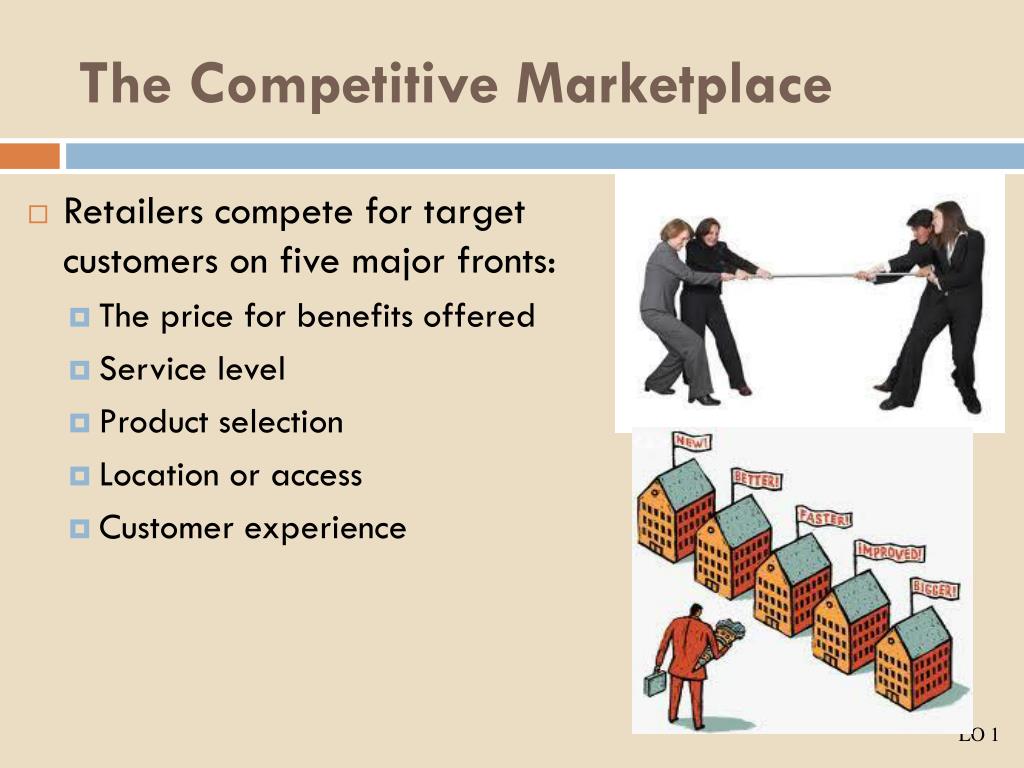


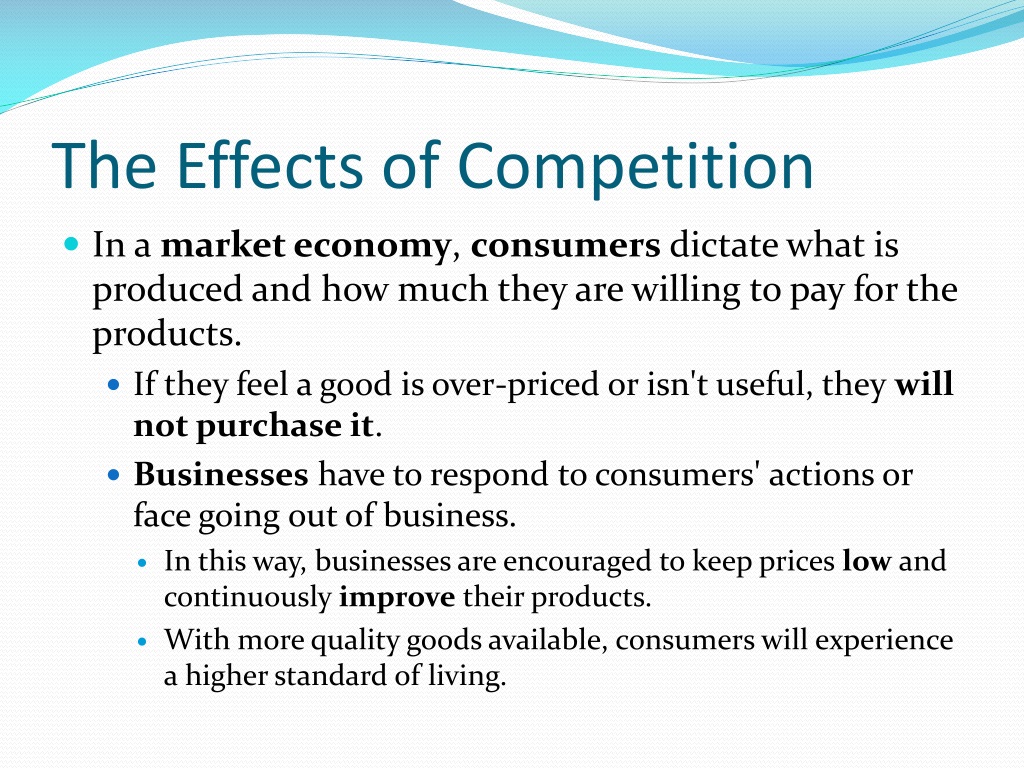
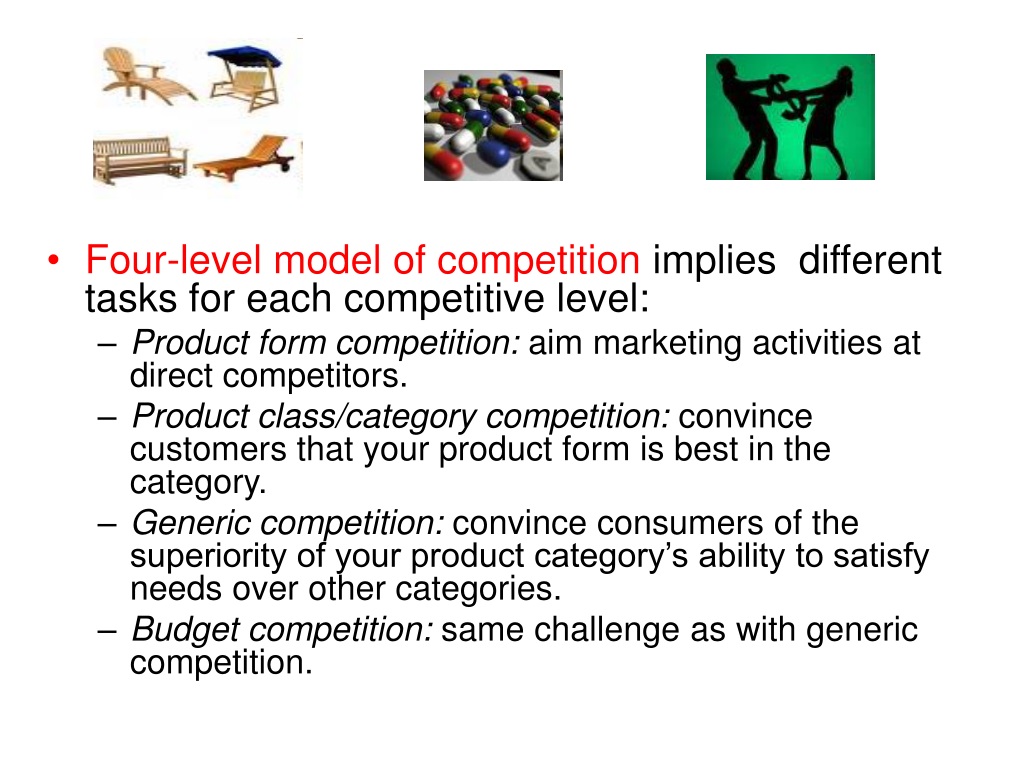

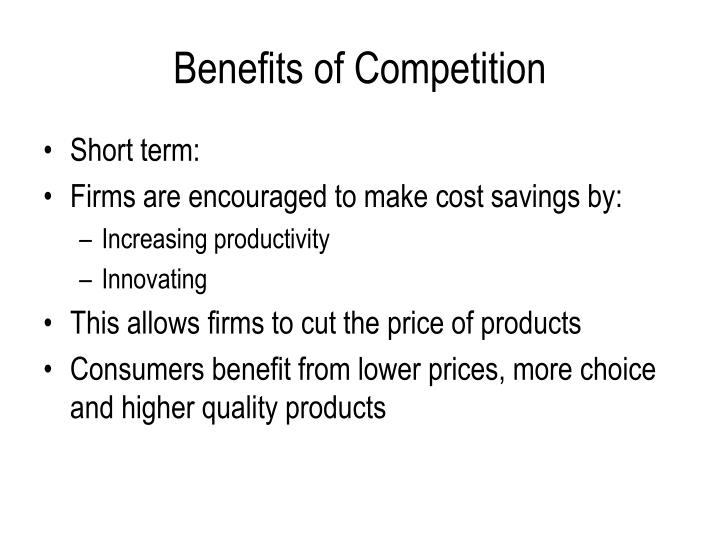
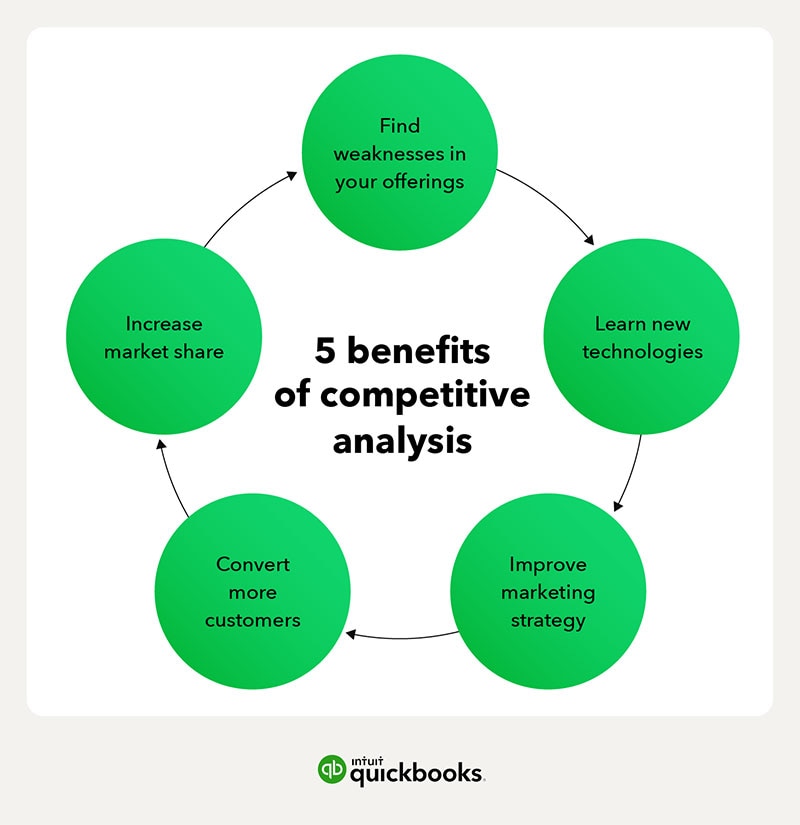
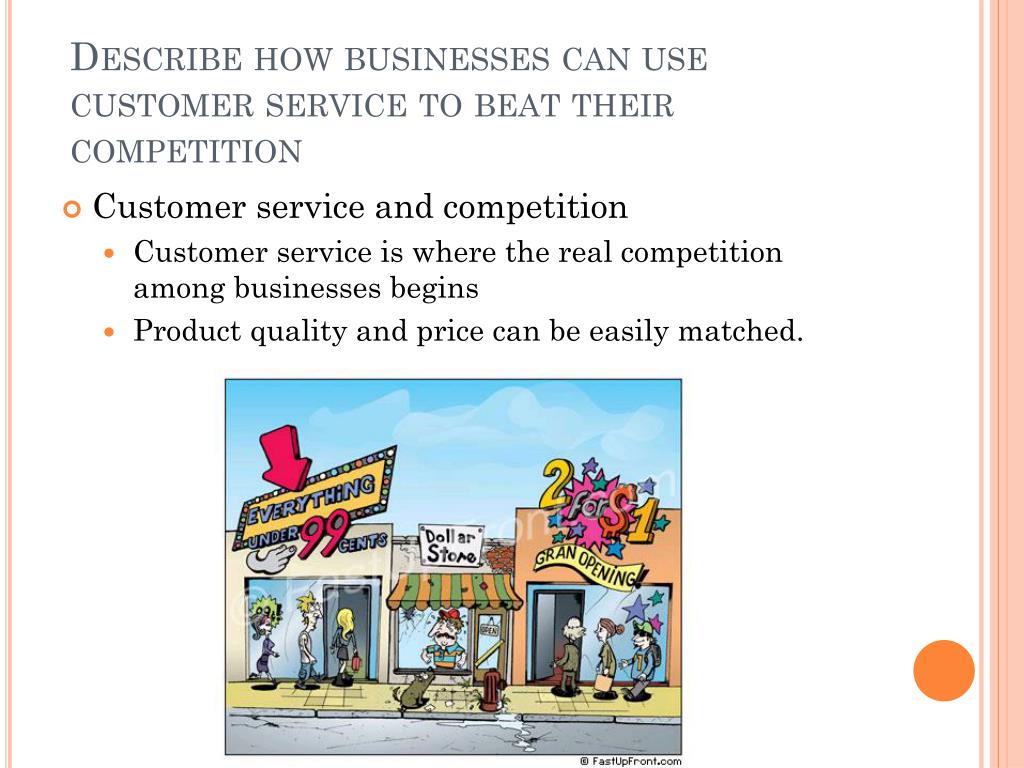



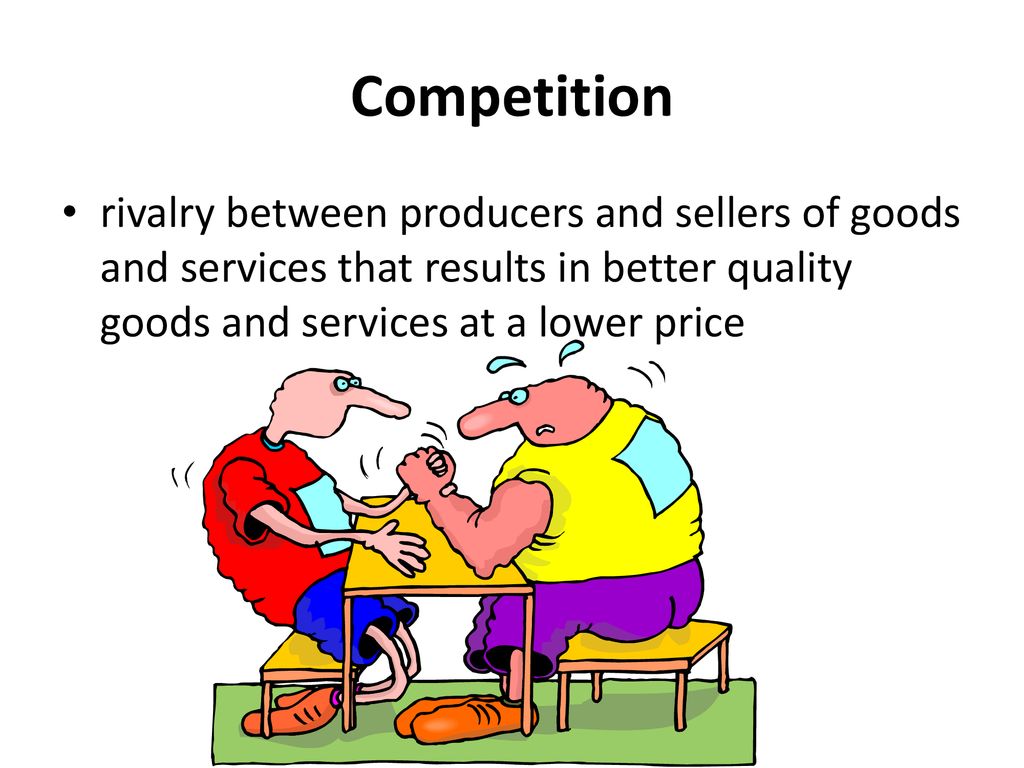



:max_bytes(150000):strip_icc()/Perfect-Competition-2de51ba3fa8a40e9bdfdc7b98a195ce0.png)
